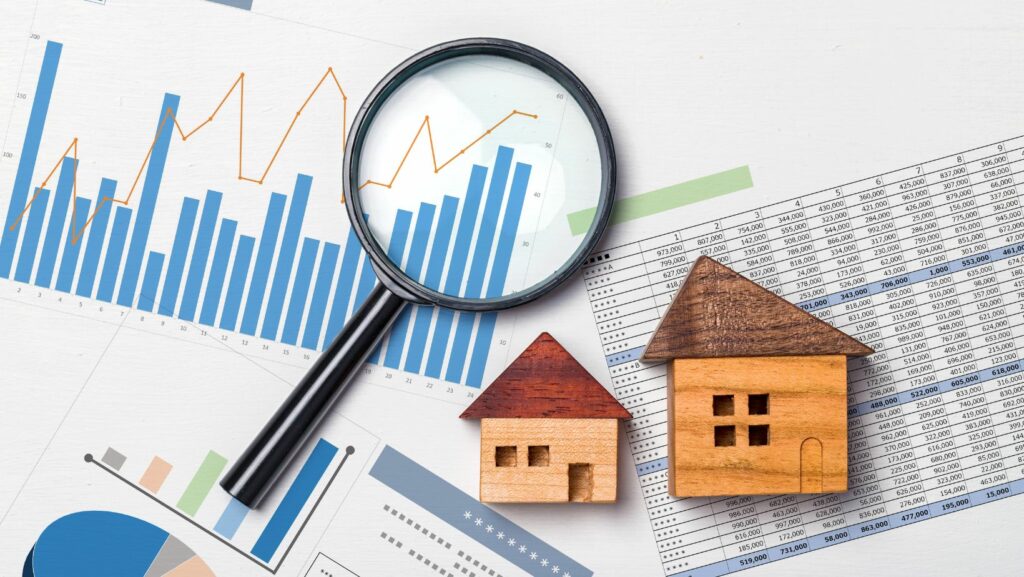The Risks Associated With Real Estate Blockchain

A blockchain is a digital ledger of all cryptocurrency transactions. It is constantly growing as “completed” blocks are added to it with a new set of recordings. Each block contains a cryptographic hash of the previous block, a timestamp, and transaction data. Bitcoin nodes use the block chain to differentiate legitimate Bitcoin transactions from attempts to re-spend coins that have already been spent elsewhere.
Real Estate Blockchain With Social Using
Real Estate Blockchain is a new and upcoming technology that is slowly starting to take over the industry. With its many benefits, such as tamper-proofing and speed, it is no wonder why so many people are starting to use it. However, like with any new technology, there are also some risks associated with it. Let’s take a look at some of the risks associated with Real Estate Blockchain.
Lack of Understanding
Real Estate Blockchain, often hailed as a panacea for the real estate industry’s ills, is still in its infancy and many people lack a clear understanding of the risks and potential benefits associated with this new technology. In addition, because real estate transactions are complex and often involve multiple parties, it can be difficult to determine how best to use blockchain technology to streamline the process. As a result, there is a risk that early adopters could be taken advantage of by unscrupulous developers or investors.

Lack of Interoperability
The lack of interoperability between different blockchain platforms is a major risk associated with real estate blockchain. Different blockchain platforms have different features and functions, which can make it difficult for them to work together. This can create silos of data and information that make it difficult for users to access the data they need.
Lack of Scalability
There is no doubt that blockchain has the potential to revolutionize the real estate industry. By allowing buyers and sellers to connect directly, without the need for intermediaries, and by providing a secure, tamper-proof ledger of all transactions, blockchain could help to streamline the buying and selling process, saving time and money.
However, there are also some risks associated with real estate blockchain. One of the biggest risks is that the technology is still in its infancy and has not yet been proven on a large scale. Another risk is that, because it is a distributed database, it could be subject to hacking or other forms of malicious attack. Finally, blockchain technology is not yet well understood by the general public, which could make it difficult to get wide-scale adoption.
Regulatory Uncertainty
One of the biggest risks associated with Real Estate Blockchain is regulatory uncertainty. Because the technology is so new, governments and regulatory bodies have not yet put in place clear guidelines on how it can be used. This lack of clarity could result in projects being delayed or even cancelled if regulations change unexpectedly.
Another risk is that of fraud. Since Real Estate Blockchain involves the transfer of large sums of money, there is a danger that unscrupulous individuals could use it to defraud investors. There have already been a few cases of fraud involving real estate blockchain, so this is definitely something to be aware of.
Finally, there is also the risk that the technology could be used for illegal activities such as money laundering or terrorism financing. This is because Real Estate Blockchain provides a way to move large amounts of money around without detection. While there are efforts being made to prevent this from happening, it is still a possibility that needs to be considered.
How can These Risks be Mitigated?
The use of blockchain in the real estate sector has the potential to revolutionize the way we buy, sell, and manage properties. Blockchain can provide a secure, decentralized way to track and transfer ownership of assets, eliminating the need for centralized intermediaries like banks or government agencies. However, blockchain is still a new and untested technology, and there are a number of risks associated with its use in the real estate sector. In this article, we’ll explore some of the risks associated with real estate blockchain and how they can be mitigated.
Improved Education and Understanding
The biggest risk when it comes to real estate blockchain is that of fraud and scams. Because the technology is still so new, there are a lot of people who don’t understand how it works. This can lead to people being taken advantage of by criminals who are looking to exploit the lack of understanding.

The best way to mitigate this risk is through education and awareness. There need to be more resources available that can help people understand what blockchain is and how it works. Additionally, there need to be better systems in place to ensure that the information people are putting into the blockchain is accurate.
Another big risk when it comes to real estate blockchain is the potential for hacking. Because the blockchain is a decentralized system, it is difficult to protect against all potential threats. If hackers are able to gain access to one part of the system, they could potentially wreak havoc on the entire system.
There are a few ways that this risk can be mitigated. First, companies should make sure that they are using strong security protocols when storing data on the blockchain. Additionally, they should consider implementing multiple layers of security, such as both private and public keys, to further protect data. Finally, companies should regularly audit their systems to ensure that they are secure.
Interoperability Standards
In order for different blockchain solutions to communicate with each other, they need to use interoperability standards. These standards define how different blockchain networks can interact with each other, and they are essential for the scaling of the technology.
There are a number of different initiatives working on developing these standards, including the InterWork Alliance, the Blockchain Interoperability Alliance, and the Global Blockchain Forum.
Scaling Solutions
Scalability is often cited as one of the main challenges facing blockchain technology. The limited capacity of blockchain networks can result in high transaction costs and slow processing times, which can be a deterrent for businesses looking to use blockchain.
There are a number of solutions that are being developed to address the scalability issue. These include:
-Sharding: This involves dividing the blockchain into smaller parts, or shards, so that each node only needs to process a subset of transactions. This can help to improve performance and reduce costs.
-Segregated Witness (SegWit): This is a protocol upgrade that separates witness data from transaction data. This reduces the amount of data that needs to be verified, resulting in improved performance.
-Off-chain solutions: These involve moving some or all of the transactions off the blockchain, onto a separate network. This can help to improve scalability while still maintaining the security and transparency of the blockchain.
Regulatory Clarity
When it comes to real estate, blockchain technology is still in its early stages of development and adoption. Nevertheless, the potential risks and rewards of using blockchain in the real estate industry are already becoming apparent.
One of the biggest risks associated with real estate blockchain is regulatory uncertainty. Because blockchain is a new and complex technology, governments and regulatory bodies have not yet put in place clear guidelines for its use. This lack of clarity could hamper the adoption of blockchain-based solutions in the real estate industry, as companies may be hesitant to invest in something that could potentially fall foul of future regulation.
Another risk is the potential for fraud and cybercrime. Because blockchain provides a permanent and tamper-proof record of all transactions, it could be used to facilitate fraud or other illegal activities. For example, someone could create a fake property listing on a blockchain-based platform in order to cheat would-be buyers out of their money. Cybercriminals could also target blockchain-based real estate platforms in order to steal sensitive data such as payment information or identity documents.
Fortunately, there are ways to mitigate these risks and make real estate blockchain a safer and more trusted technology. One way is through the use of digital signatures and other authentication methods, which can help to ensure that data stored on the blockchain is accurate and tamper-proof. Another way is through the development of clear and consistent regulations around the use of blockchain in the real estate industry. By putting in place proper guidelines and safeguards, regulators can help to encourage companies to adopt blockchain-based solutions while also protecting consumers from potential fraud or other risks.


